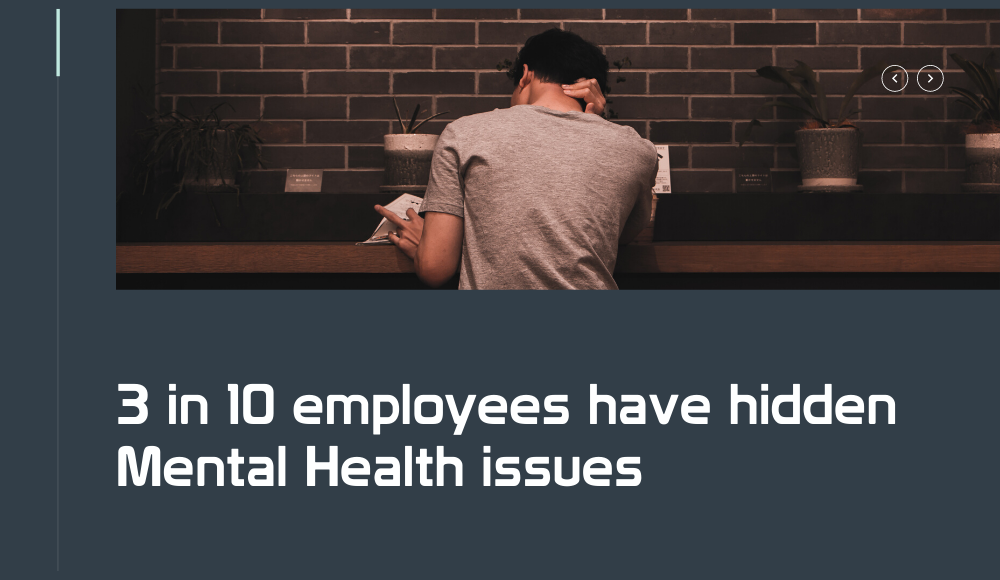
Are your employees hiding THIS?
For many years, there has been a stigma surrounding mental health.
In the workplace, some employees are still afraid to notify their employers of their mental health challenges due to fears that this could set them back.
Three in ten (30%) UK employees have concealed a mental health issue from their employer according to a study by Helix Resilience. Rather than inform their employer of their mental health issue they are more likely to claim they are physically ill when they phone in sick.
The survey that consisted of 2000 white-collar workers from London found that those aged between 18 and 24-years-old were the most likely to hide a mental health issue, with 37% admitting to doing so.
The report suggested a negative correlation between age and the struggles opening up about mental health challenges.
Lockdown has had a massive impact on mental health.
In addition, 83% of survey respondents noted that the pandemic and consequent lockdown had a big impact on their mental health, particularly noting a decline.
It will likely not come as a shock that overall women reported more mental health issues during this period than men.
42% of women reported feeling anxious compared to 42% of men and 50% of women said they had more difficulty sleeping compared to that of 41% of men.
Founder and CEO of Helix Resilience, Dr Stephen Pereira said that, unfortunately, mental health is still seen by many as a “taboo subject” and that this could leave some feeling ‘wary of disclosing the true nature of their illness’.
“It’s vital that company culture in respect of mental health begins to change,” he added.
Supporting your employees’ mental health
With so many employees struggling to varying degrees in the pandemic, it is crucial that employers provide support. Employees need to feel as though they can speak up about any challenges they may be facing.
Protecting your employees in this way and in turn their mental health will make a huge impact on their wellbeing, but not only this it can also have huge benefits for moral, engagement and productivity as well.